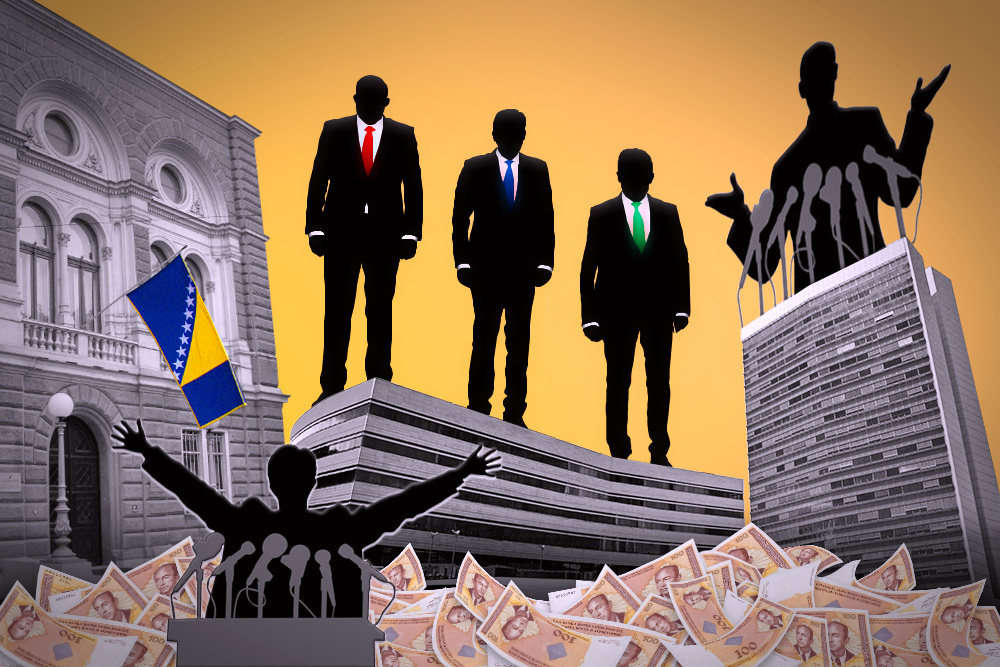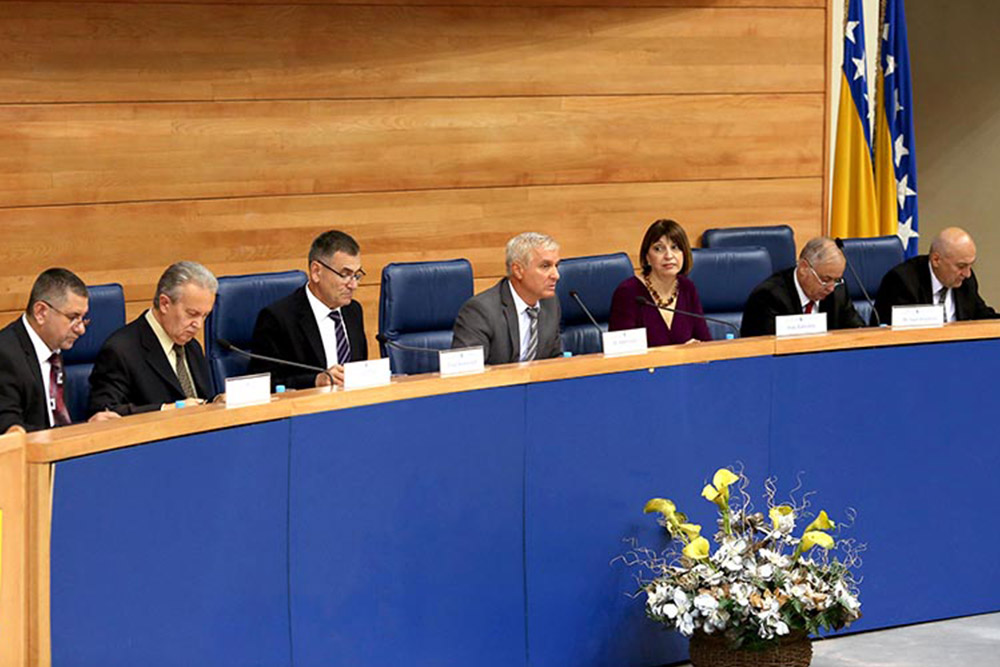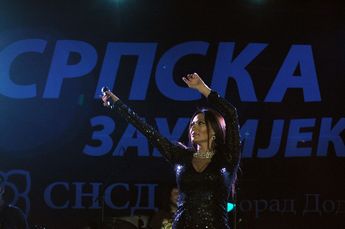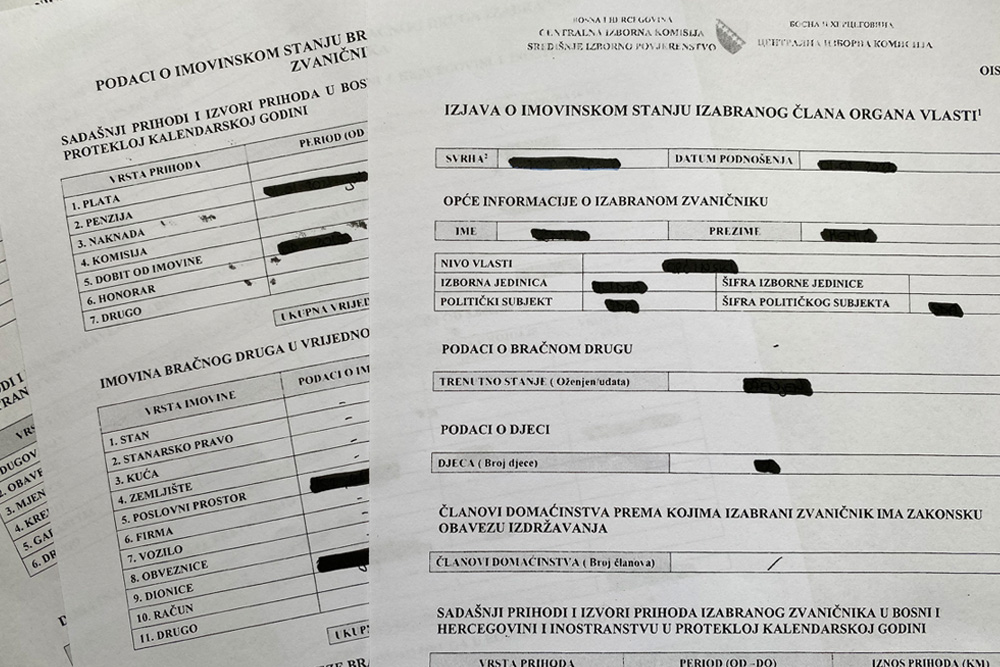Since coming to power in 2006, the governing parties in Bosnia-Herzegovina (BiH) have done little about keeping election promises.
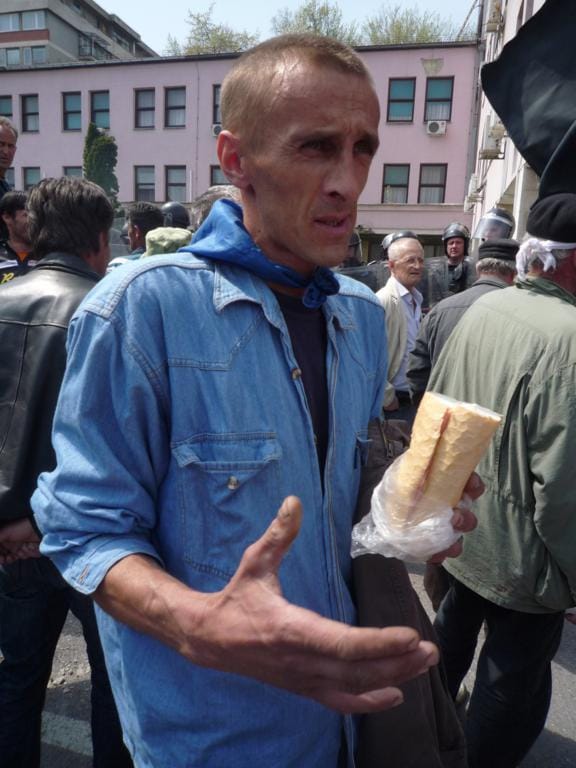
Photo by CIN
Four years ago, the parties talked about giving people a higher standard of living, reducing poverty, ending privatization and making it easier for businessmen and entrepreneurs.
The Croatian Democratic Union (HDZ) and The Alliance of Social-Democrats (SNSD), two of the four parties that hold much of the power at all levels of government, both promised a higher standard of living.
And indeed, statistics show, the average net salary in May was 795 KM — 196 KM more than October 2006, the month of the last elections. Pensions like salaries also are up. The average pension in the Republika Srpska (RS) in June was 320 KM, and in the Federation of BiH 341 KM, or 110 KM and 93 KM more than in October, 2006.
But a representative for the Council for Consumer Protection in BiH, Gordana Bulić, said that the standard of living in BiH is actually no better than in 2006, because of big increases in the costs of living.
Average prices in June were up over October, 2006, by 10.1 percent. Food prices were up 15.5 percent, communications including phone and Internet by 15.2 percent, transportation by 9.5 percent, education by 7.6 percent and housing and utility bills by 7.1 percent.
Edin Šabanović, deputy director of the BiH Statistical Agency, said that meeting the monthly needs of a four-member family required 1,541 KM in 2007. In June, that family would need 1,681 KM to buy the same things. That is twice the average salary.
Redžib Tokalić, a 37-year-old Sarajevo man with a wife and three children, has not benefited at all since the elections. He makes his living without a steady income, selling iron, coal and wood, cannot think about retirement. He voted for the Party for BiH in 2006, he said, but doubts he will vote at all the next Election Day.
‘I lost all hope’ says Redžib.
A Meal For 2.5 KM
According to a 2007 World Bank report, more than 500,000 BiH citizens were living in poverty – with monthly earnings of less than 205 KM. The bank has not measured poverty levels since then, but in December 2009, it estimated that the number of poor BiH residents might have increased by 70,000.
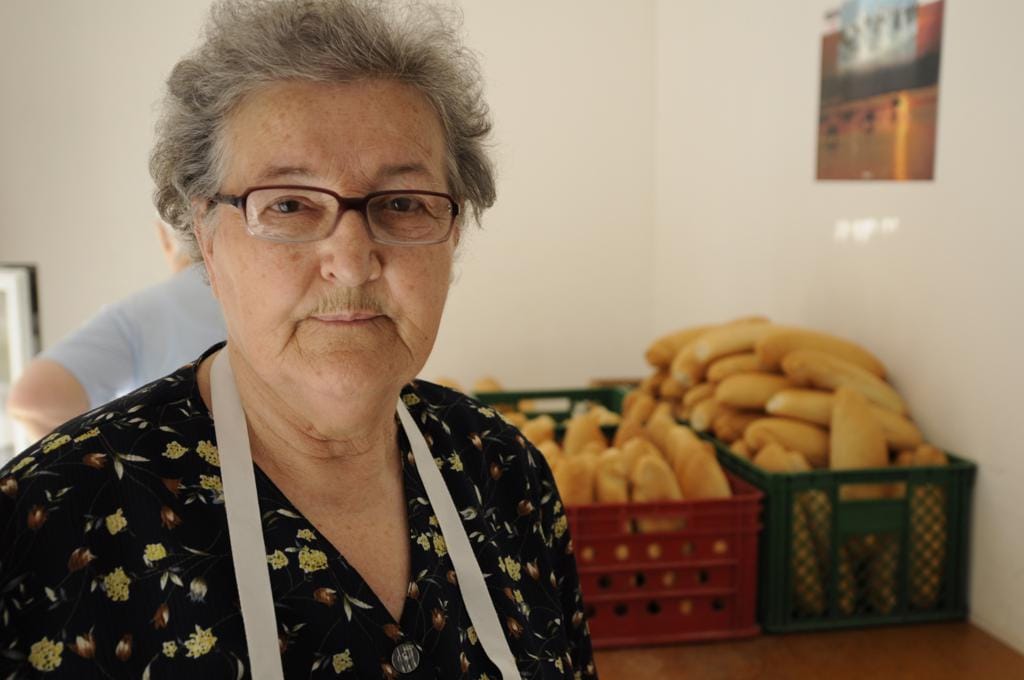
Photo by CIN
Old people and pensioners make up the majority of the poor. Data culled from the FBiH and RS Pension Funds shows that out of the total of 564,856 pensioners, 196,950 received the minimum pension of between 160 and 296 KM.
Pensioner Ljerka Baksa, 77, from Sarajevo says it’s hard to manage even on the 400 KM pension she shares with her unemployed daughter. She volunteers at Red Cross’s Public Kitchen which allows her to eat there and stretch her income.
‘I used to be a big optimist and now I’m a big pessimist’ says Baksa.
Refik Kravić, the head of the Red Cross kitchen, said many more people might benefit from public kitchens but they don’t meet the strict criteria that the welfare officials set. To eat for free in the RS, monthly income can be no more than 41 KM. In the FBiH, an income of no more than 70 KM is allowed.
The Red Cross estimates it is feeding only 2,849 people through public kitchens now.
‘For a certain category of population it is harder today than it was during the war. Whoever claims that it is easier now than it was 10 years ago is mistaken’ says Kravić.
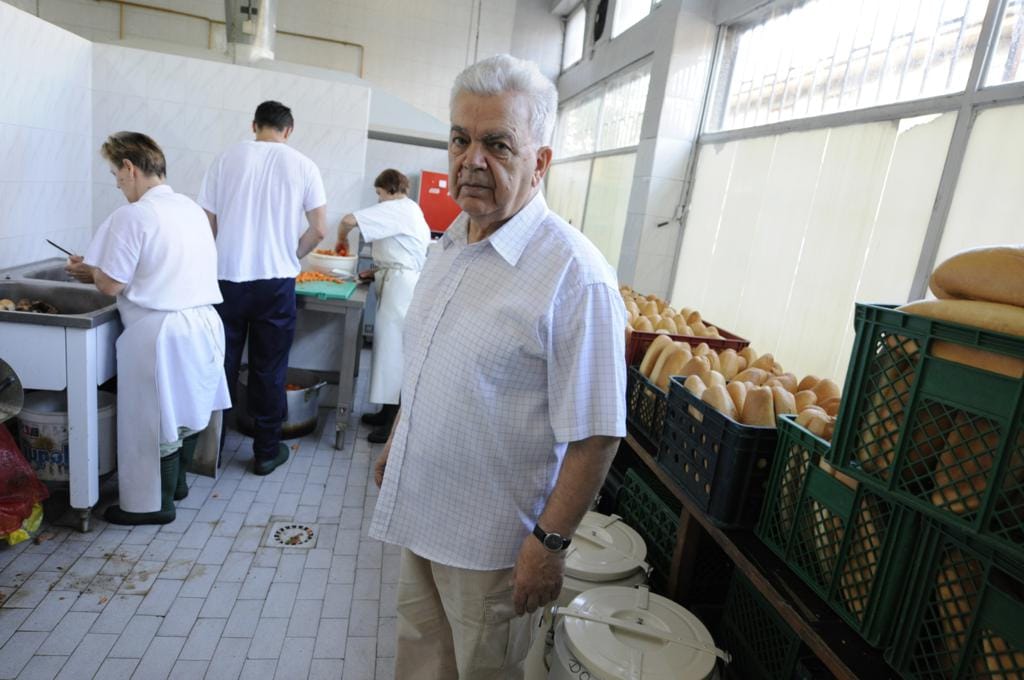
Photo by CIN
He added that many of those who don’t meet the criteria for a free lunch show up and wait in front of public kitchens, hoping there’ll be a surplus. The usual lunch is porridge or canned food with bread, worth about 2.5 KM.
The Center for Investigative Reporting in Sarajevo (CIN) looked at data related to all 23 public kitchens (including the Red Cross) around the FBiH where poor people go to eat. Not all these institutions have such strict income restrictions. Comparable data from all RS kitchens was not available. But, in the Federation some 13,500 people are going to the kitchens, some 4,000 more than in 2008. Figures from 2006 could not be obtained.
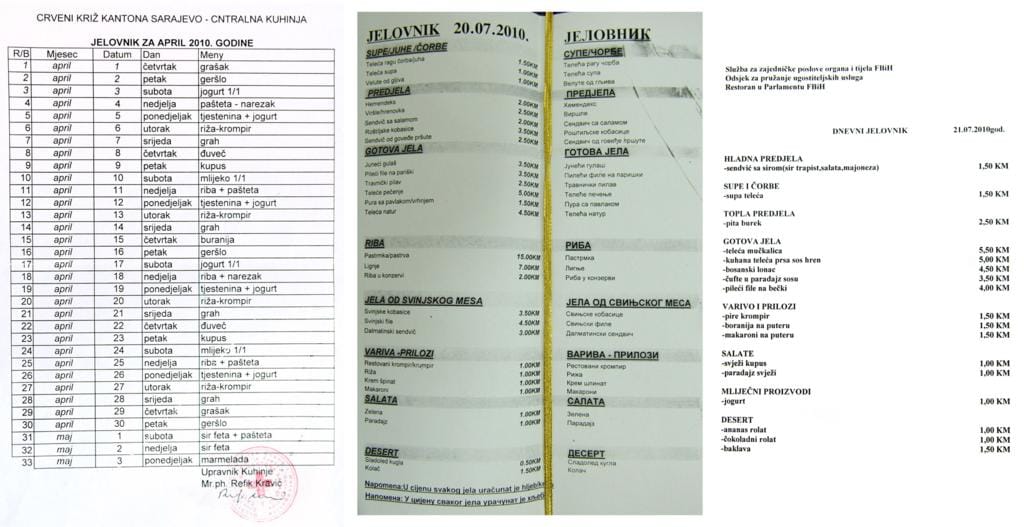
Photo by CIN
Finding Jobs for People
The Party of Democratic Action (SDA) promised in 2006 to increase employment by 15 percent.
But it has fallen far short of that. According to the BiH Agency for Labor and Employment, the difference in unemployment between 2006 and June was just 7,047 people, a 1.4 percent decrease.
‘Elections are due in October and many leading political experts are giving speeches and promising employment to citizens…None of that will happen’ says Huso Sarić, director of the labor agency. The promises are based on nothing substantial.
SNSD does seem to have worked to increase employment of part of the population – its own members. The SNSD Municipal Board in Trebinje circulated a letter in June to the directors of companies in Trebinje to hire its party members based on the ‘poverty level and engagement within the party’ out of their, as the letter put it, ‘obligations to the party.’
Living on 41 KM a Month
In their race for the votes, the Party for BiH and SNSD promised voters better welfare protection while SDA and HDZ promised more money for such programs.
Welfare in FBiH cantons is between 46.70 and 176 KM, and has not changed significantly in comparison with 2006. In some cantons the amount has shrunk.
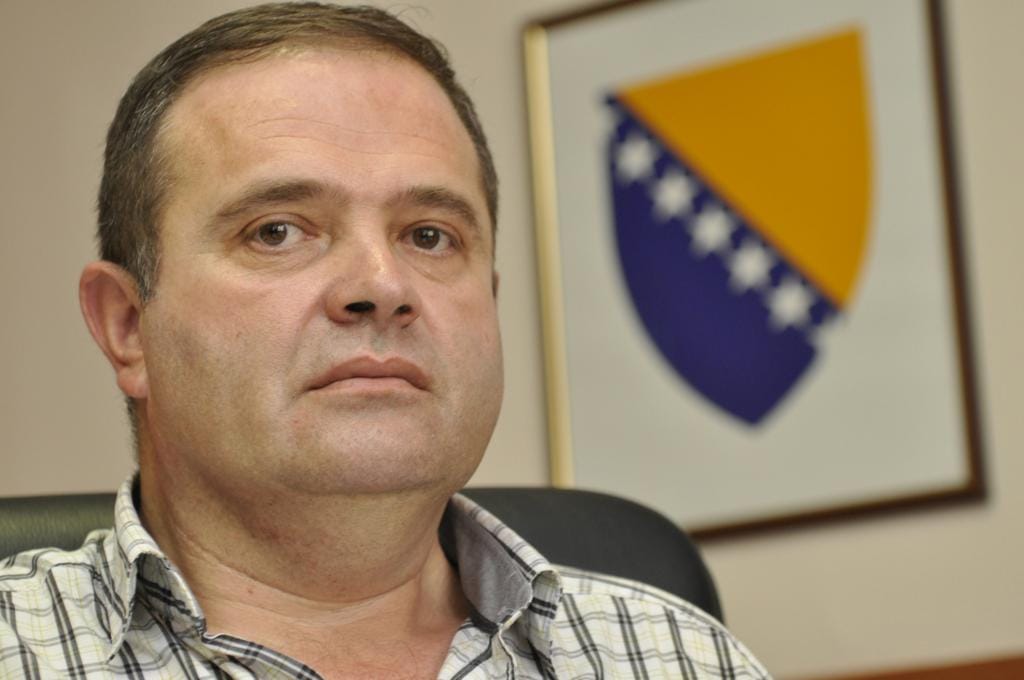
Photo by CIN
Government officials in the federation have done well since the elections. Statistics from the Centers for Civic Initiatives (CCI) are ambiguous but show that between 2007 and the first half of 2009 average salaries for legislators increased by about 1,000 KM. This does not include any of the varied benefits they are entitled to and it does not account for the loss of an official’s bonus at one time paid to them.
According to Ljubo Lepir, deputy minister of health and social security in the RS, about 6,000 citizens receive welfare of 41 KM a month. The maximum welfare available for families of five is 82 KM. Welfare benefits have not been increased since 2003.
Also, according to the CCI ministers in the RS government have doubled their salaries from 1,800 KM to 3,600 KM. Earnings of legislators in the RS National Assembly have also doubled to 3,150 KM. These figures do not reflect other benefits they are entitled to.
Ministerial salaries are worth 88, and legislative salaries 77 monthly installments of welfare.
That is hard to take for people such as 66-year-old Savo Đukanović, a sick refugee from Ključ who has been living in Banja Luka for the past 16 years and eating at Caritas’s public kitchen.
‘I pay 41 KM for medicine’ says Đukanović. That takes his entire welfare payment.
It’s Hard For Industry As Well
Two parties—Party for BiH and HDZ—promised voters in 2006 that they would harmonize the taxes and benefits in both entities. That promise has not been kept.
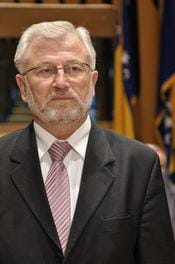
Photo by CIN
HDZ also campaigned on creation of a better business climate. However, a World Bank report ‘Doing Business’ this year showed that out of 183 countries, BiH ranked 116 in terms of ease of doing business. In 2006 it was 87 out of 155 countries.
And in terms of starting a business, BiH is only ranked 160. In comparison with the 2006 report when it took about 54 days to start a business, today it is 60 days. To start a business in Serbia and Montenegro requires 13 days of effort and Croatia 22 days.
The report also states that the employment-related taxes levied on business are much higher in BiH than those in the region or in other European countries.
SNSD and SDA candidates also campaigned on a platform of ending privatization by the time of new elections. According to data collected by privatization agencies, as of February, some 745 companies remained to be privatized.
In a report last fall, the FBiH Privatization Agency said the results of privatization have been ‘extremely bad in the past several years, especially in the first half of 2009, which leads to a conclusion that the process has practically came to a halt.’
Representatives of SNSD, HDZ, Party for BiH and SDA blamed each other for the lack of progress on election promises. Each told CIN that their party had to make compromises with their partners in power.
Ivo Miro Jović, an HDZ member and a delegate to the BiH Parliament’s House of Peoples, admits that few promises have been kept.
‘It cannot be said that we didn’t do anything, but what we had planned to do for the whole of BiH, not only for Croatian people, was very little’ he said.
In addition to their failure to honor campaign promises, the politicians have also fallen short in keeping promises and plans they made once in office. CCI data on the three years after the elections show that the BiH Council of Ministers has accomplished less than half of what it set out to do, while the BiH Parliament has passed only the third of the laws it intended to work on.



